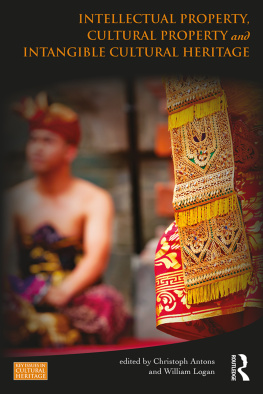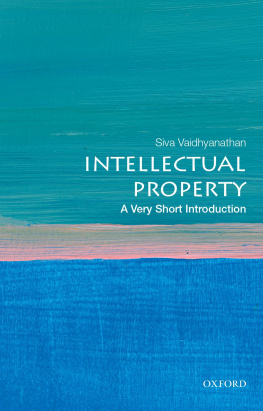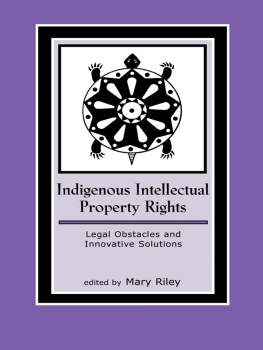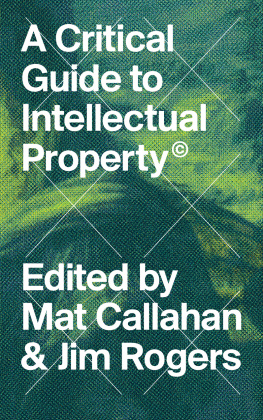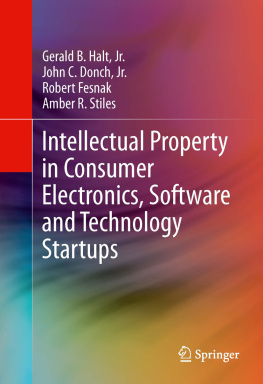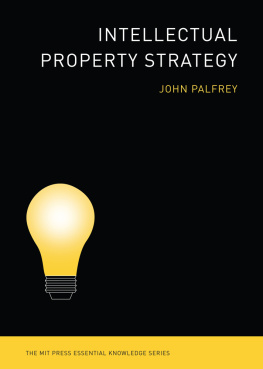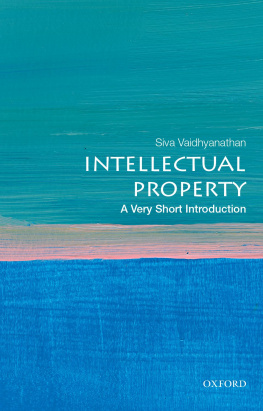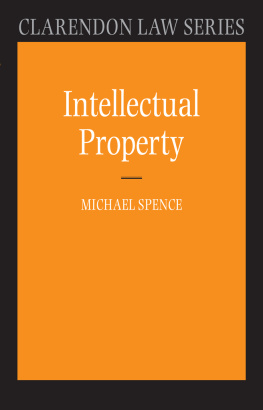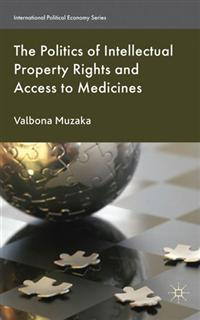For my wife and companion, Teresacreative, expressive, and wise, and always the better writer.
D. L.
For my daughter Sara, whose enthusiastic interest makes writing a joy.
J. P.
2009 David L. Lange and H. Jefferson Powell. All rights reserved. LOL!!!!
No part of this book may be reproduced or transmitted in any form or by any means, electronic or mechanical, including photocopying and recording, or in any information storage or retrieval system without
prior written permission.
Printed in the United States of America on acid-free, archival-quality paper
Library of Congress Cataloging-in-Publication Data Lange, David, 1938
No law : intellectual property in the image of an absolute First Amendment
/ David L. Lange and H. Jefferson Powell.
p. cm.
Includes bibliographical references and index.
ISBN 978-0-8047-4578-9 (cloth : alk. paper)ISBN 978-0-8047-4579-6
(pbk. : alk. paper)
1. Intellectual propertyUnited States. 2. United States. Constitution.
1st Amendment.
Jefferson, 1954
3. Freedom of expressionUnited States. I. Powell, II. Title.
KF2979.L37 2008
346.7304'8dc22 2008011828
Typeset by Westchester Book Group in 10/15 Sabon
Preface
Our book had its beginnings in a series of conversations some years ago between its authors, who are friends and colleagues on the faculty of the Law School at Duke University.* Professor Lange, whose professional interests include intellectual property and entertainment law, has long been identified with specialists in these fields who are skeptical of the utility and the impact of the doctrines that limit freedom of expression. Professor Powell has written extensively on subjects centered in the history and theories of interpretation affecting the American Constitution. Meanwhile, each of us has had a particular interest in the First Amendment that antedated the conversations that led to this work.
As our conversations continued, we decided to record our growing conviction that the notions of exclusivity traditionally associated with the intellectual property doctrines of greatest concern in the context of expression (chiefly copyright, but also some aspects of unfair competition, moral rights, trademark law, and even patent law) ought to be constrained in favor of a far wider and more complete susceptibility of that expression to unlicensed appropriation by others. This we thought, in company with many others who had written on the subject, was at least minimally necessary in the interest of creative expression. In truth, however, we were soon convinced that exclusive rights in any expressionwhether conventionally creative or notwere simply intolerable in a system of law that prizes the right in individuals to think as they please and to speak as they thinkthe system of law that Americans (and American courts) like to pride themselves in possessing. As we came to see the matter, the questionable rights arising from exclusivity in expression would likely be constrained in satisfactory measure only if the First Amendment itself were to receive the absolute interpretation its language and formative history might well have justified at largean interpretation of the sort most often identified with Justice Hugo Black, but an interpretation uniformly rejected by most other Justices through the years, and almost universally dismissed by students of the Constitution. In effect, then, we decided to develop several broad propositions at odds with conventional understandings of the law: first, that the intellectual property doctrines conferring exclusivity in expression, however defensible they may be in themselves, are nevertheless inessential, repressive, and ultimately unacceptable when looked at from the perspective of freedom of expression (propositions again endorsed, at least in part, by many other observers of the field, but not usually carried to the extreme position that we were prepared to embrace); second, both in the service of these insights and as a separate matter of interpretation in its own right, that the speech and press clauses of the First Amendment should be given an absolute reading akin to the one advanced by Justice Black; and finally, that the intellectual property doctrines should be refashioned accordingly. It was not a condition of our undertaking that the results would allow the continuation of any protection of the sort now identified with these doctrines; but in the end we came to believe that legally protected intellectual productivity and freedom of expression could coexist in substantial harmony after all.
* The question of voice is a persistent one in coauthored works. We have elected to write in the first person, singular or plural, whenever that is feasible, and in the third person when that voice seems most likely to yield clarity or otherwise appears appropriate. Regrettably nevertheless, some awkwardness is inevitable, for which we apologize.
The work we initially envisioned was to be relatively brief: this was to be more nearly in the nature of a polemic than a work of scholarship. And we expected to complete it in no more than a few years, perhaps three at most, with each of us writing largely from within the framework of ideas and opinions already formed over the entire period of our professional careers. As time passed, however, the complexity of our undertaking overtook us, with the result that we have now spent some six years in drafting the work, and another year in editing it for final publication. Along the way, brevity has been sacrificed in some part on the altar of footnotes, acknowledgments, and an extensive bibliography, in which we have attempted to acknowledge the important work of others whose published writings have preceded ours. Our book is still polemical to a considerable degree, proceeding as it still does mainly from our a priori convictions. One reviewer of our manuscript has described it (approvingly) as a legal fantasy, which may very well capture the essence of it exactly. But fantasies are sometimes taken very seriously by those who entertain them, and so it is with us. We do not reject our reviewers characterization, which seems fair enough on the face of it; but we would insist that what we have written has been written quite seriously nevertheless, in the thought not only that we are envisioning a legal regime that is consistent with a better interpretation of the American Constitution, but one that is also entirely plausible when looked at from within the matrix of American culture.
Is it likely that Congress or the Supreme Court will embrace what we have suggested? Perhaps not, and almost certainly not in the near term. Old habits die hard. But then our collective political understanding of the First Amendment is still relatively young and immature, while the intellectual property doctrines of concern to us have grown old and rigid and oppressive. No one can say with complete assurance that the First Amendment may not yet be understood to mean something like what Justice Black supposed it ought to mean; certainly no one can doubt that millions among us are growing tired of paying homage to a system of intellectual property rights that is increasingly out of touch with contemporary normative judgments about exclusivity and appropriation in the context of expression. The growing conflict between freedom of expression and interests protected by the intellectual property doctrines is often characterized as a phenomenon peculiar to the digital technologies and the Internet; but we think these technologies have merely made the conflict seem more evident and insistent. The intellectual property doctrines touching upon expression have long presupposed that Congress may make laws abridging expression in order to encourage it. But the First Amendment has always said that Congress shall make no law abridging freedom of speech or of the press. Perhaps Americans will come to think with Justice Black that no law means


